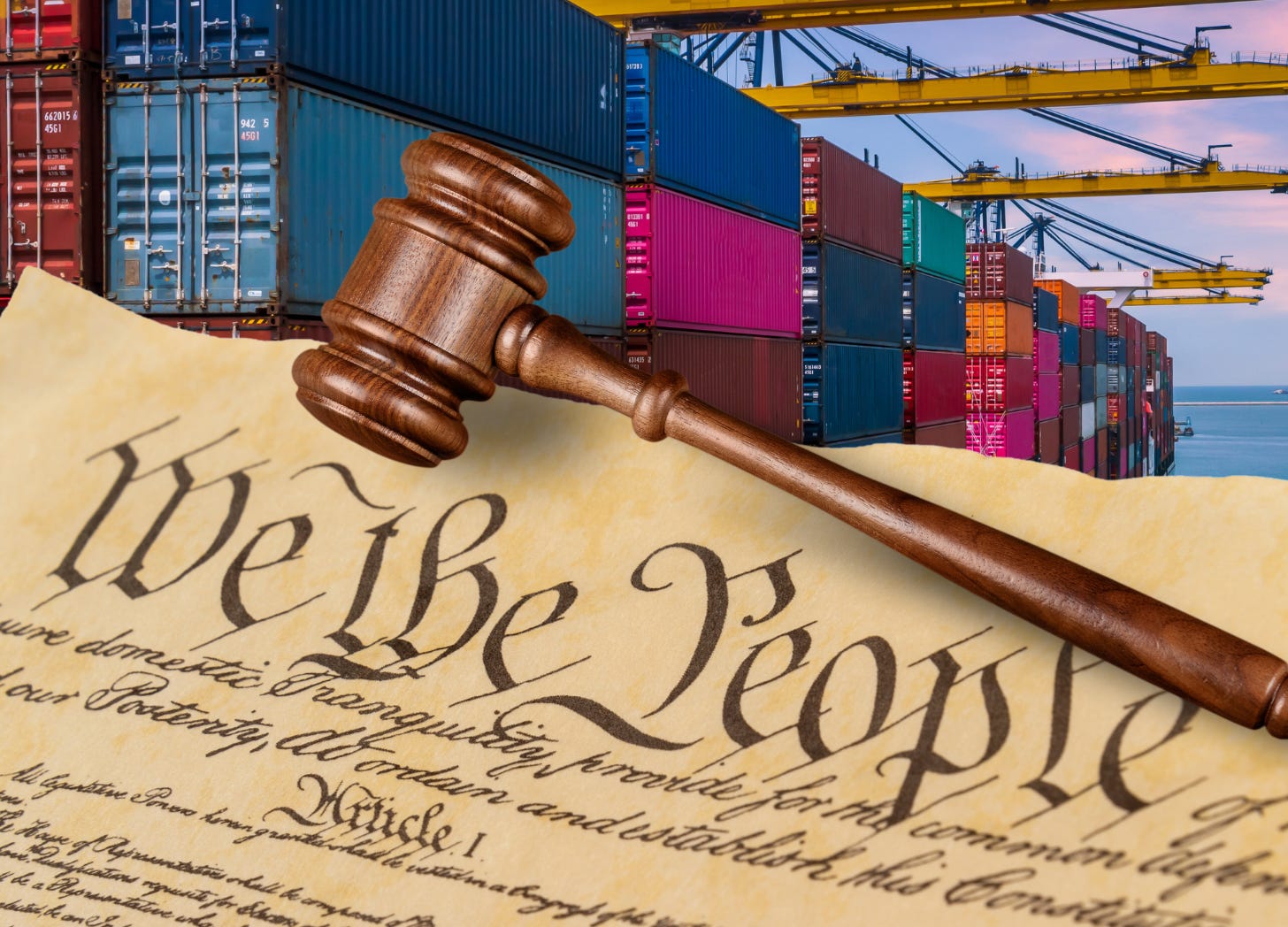The Cosmopolitics Edit: Trump's emergency power grab
Also: Trump's embrace of Poland's antisemitic presidential candidate and Hegseth's warning on Iran's nuclear poker
NOTE: This is the first edition of the Cosmopolitics Edit for paid subscribers only. Each week, I’ll give you my takes on the biggest stories, along with a curation of stories off the beaten track that I found interesting and suggestions on some lighter weekend fare to enjoy. Please consider supporting me by becoming a paid subscriber and let me know what you think in the comments below or send me a DM. Suggestions on topics, issues and format welcome!
A federal court in Manhattan delivered a constitutional earthquake this week, striking down President Trump's sweeping tariff program and exposing the dangerous extent to which emergency powers have become his weapon of choice for bypassing Congress.
The three-judge panel at the U.S. Court of International Trade didn't mince words in their Wednesday ruling, declaring that Trump had overstepped by invoking emergency powers to impose a baseline 10% tariff on most imports and harsher duties on trade-surplus nations. "An unlimited delegation of tariff authority would constitute an improper abdication of legislative power," the judges wrote, reaffirming that only Congress has constitutional authority to regulate international trade.
The ruling invalidated tariffs Trump had unveiled in a Rose Garden ceremony he dubbed "Liberation Day," affecting dozens of countries and generating approximately $68 billion in revenue this year. Though a federal appeals court temporarily reinstated the tariffs Thursday while legal challenges proceed, the constitutional clash exposed a much deeper problem.
Trump's tariff gambit rested on a legal fiction: that America's decades-old trading relationships with every country in the world – including nations he himself has dismissed as places "nobody has ever heard of" – constitute an "unusual and extraordinary threat" requiring emergency intervention.
By no stretch of the imagination can decades-old trade relationships be considered an unforeseen emergency. Yet that's exactly the legal fiction Trump's administration constructed to justify sweeping economic policy changes that Congress has repeatedly refused to authorize.
Even worse, the International Emergency Economic Powers Act was never intended to authorize tariffs. The 1977 law was designed to enable economic sanctions against hostile foreign actors – not to rewrite global trade policy. No president has ever used this statute to impose tariffs, and the word "tariffs" appears nowhere in the law or its legislative history.
The tariff case represents just the tip of a constitutional iceberg. Trump has declared eight national emergencies in his first 100 days alone – more than any modern president. For comparison, Biden issued two during his first 100 days, while Obama issued none.
Trump has now declared 21 national emergencies across his two terms – more than any president this century, accounting for 35 percent of all emergency declarations since 2001. He's issued emergencies for fossil fuel production, mineral drilling, border militarization, and economic policy, exploiting what legal scholars call loosely written statutes to fundamentally alter the balance of power.
Here's the constitutional absurdity:




